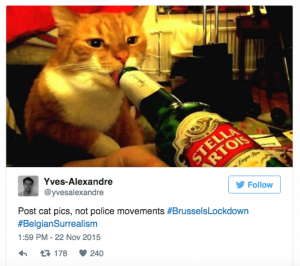Throughout the semester, my team has been working closely with Peqish to develop their digital marketing strategy. After our initial meeting with the co-founder and operations manager, it was evident that their biggest issue is being able to generate content for their online pages on a regular basis. This led me to wonder if the problem is one that applies to all small businesses or if this is a unique obstacle for Peqish.
From what we have observed, it seems that insufficient resources such as being able to hire marketing staff is one of the main contributors to the difficulty of content generation for smaller businesses. Producing quality content consistently is more difficult than it seems and if a business doesn’t have the sufficient budget to allocate manpower dedicated to growing their online presence, this can take a backseat in the priority of operations.
Another issue that often arises is the difficulty in measuring ROI for content marketing. It can be hard to directly link a growth in a business’ social media pages to an increase in traffic within their brick-and-mortar store. This is something that Peqish asked our team to work on and is definitely something we have struggled with as quantifying a digital marketing strategy can be tricky if there are no clear content goals.

The diagram above is known as the ‘project management triangle’ where you will have to choose between two of the three factors when it comes to producing content – efficiency, price and quality. Many times small businesses may have to sacrifice quality for consistency especially because they will have to either choose between a heavy time investment required to produce consistently quality content or invest in hiring an in-house content marketer. Therefore, it seems the Peqish’s issues with content generation is definitely something that many smaller businesses struggle with and is actually a common obstacle for many.


